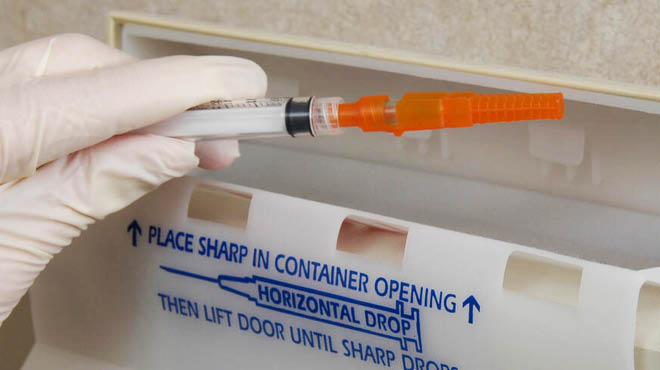Recent Posts
5, 4, 3, 2, 1: Countdown to take control of anxiety

Anxiety often is described as sustained, excessive worry that a person cannot control related to the anticipation of a future threat, such as a traumatic event. At times, anxiety can have a significant, adverse effect on daily life, work, relationships and overall happiness. Anxiety also can manifest as an irritable, worried, restless and debilitating stress response lasting minutes to days. Almost everyone has had anxiety surrounding a stressful situation.
Anxiety becomes an obstacle to a happy, healthy life when it affects your day-to-day life in these ways:
Emotionally, anxiety can appear as:
- Excessive worry
- Fatigue
- Irritability
- Panic attacks
- Paranoia
- Poor concentration
- Restlessness
- Sleep disturbances
Physically, anxiety can appear as:
- Chest pain
- Diarrhea, stool pattern changes or upset stomach
- Headache
- Increased heart rate
- Muscle aches
- Shaking
- Shortness of breath
- Sweating
The negative effects of anxiety
Left unchecked, anxiety can negatively affect your life in these ways:
- Interrupting daily life
Causing issues at home, school, work and socially. - Isolating
Not wanting to participate in normal daily activities or take new steps in life due to fear. - Emotionally
Increasing risk for depression, suicide and failure to progress in life. - Physically
Increasing risk for physical distress, nausea, vomiting, diarrhea, constipation, chest pain and tremors. - Mentally
Increasing risk for poor decision-making and communication.
Tips to combat anxiety
There are several things you can try to help combat anxiety, including:
- Behavioral therapy
- Deep breathing
- Exercise
- Journaling
- Meditation
- Reading
- Socializing
- Speaking with your health care professional
- Spirituality
- Thought reframing
Mindfulness is a meditation in which you focus on being intensely aware of what you see and feel in the moment, without interpretation or judgment. Practicing mindfulness involves breathing methods, guided imagery, and other practices to relax the body and mind to help reduce stress. Recent research shows mindfulness meditation may be as effective at reducing anxiety as medication for some people.
Try this exercise the next time your mind is stuck on the worry setting.
Sit quietly. Look around you and notice:
- 5 things you can see
Your hands, the sky, a plant on your colleague's desk - 4 things you can physically feel
Your feet on the ground, a ball, your friend's hand - 3 things you can hear
The wind blowing, children's laughter, your breath - 2 things you can smell
Fresh-cut grass, coffee, soap - 1 thing you can taste
A mint, gum, the fresh air
This exercise helps you shift your focus to your surroundings in the present moment and away from what is causing you to feel anxious. It can help interrupt unhealthy thought patterns.
When to seek advice or treatment from a medical professional
It's recommended you speak to a health care provider about your anxiety should any of these situations occur:
- Your anxiety becomes an obstacle in any aspect of everyday living, often causing difficulties for six or more months.
- Your anxiety becomes a negative influence in relationships creating barriers in life.
- Your anxiety leads to isolation producing thoughts of hopelessness or helplessness.
- Your anxiety controls your life with emotional or physical response to excessive worry.
Seek support from a therapist, medical professional, family member, friend, community support person, crisis line resource or a crisis center. Depending on the severity of your anxiety, a behavioral therapy plan, anti-anxiety medication and coping mechanisms may be recommended for your situation.
Recognition of anxiety is a key factor in dealing with excessive worry and moving forward in life. If you experience symptoms or difficulty controlling worry, ask yourself if it could be anxiety you're experiencing. It's important to share any concerns about excessive worry with your health care provider so we can help you identify ways to address your anxiety and move past the adverse effects of excessive worry.
Jill Christensen is a Family Medicine nurse practitioner in Waseca, Minnesota.





